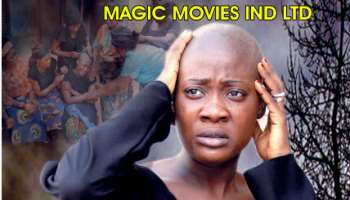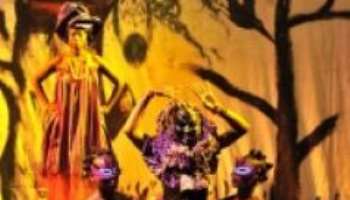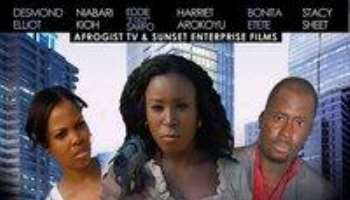The new cinema: Nollywood or not?
•Mike Ekunno who was a Senior Speechwriter to the immediate past Minister of Information and Communications, takes a panoramic view of the celluloid scene and tries to anticipate its future direction...
Nollywood is at the threshold of a paradigm shift, which may have started in 2010. Just as 1992 is credited with the birth of Nollywood with “Living In Bondage”, a modest cache of offerings on the big screen in 2010 (FIGURINE, INALE, IJE and ANCHOR BABY) may have started the re-birth of Nollywood. But as to the nature of this change, it is still morning yet on creation day. Time shall tell whether the change is an ecdysiast of the snake merely shedding its skin or a mutation that goes down to the genes. If it is the former, there may be nothing to cheer except the fact of the different platform – cinema – that the movies are coming out on. But if it is the latter, there will be lots to cheer about because it means we would be seeing changes in the very characteristics that define (and malign) Nollywood. What are these characteristics?
Budget and gestation period are top on the list of Nollywood's defining parameters. Nollywood movies are low budget movies. With the sum of two million Naira, a producer can coble together a respectable flick. Also the gestation period from pre-production to marketing can be of the order of few weeks. Somehow, the questions of budget and gestation period are inter-connected like an engine head and its trailer. Low budget means that the script cannot be properly researched or a good scriptwriter hired. Many a time, some hare-brained storyteller is engaged and gifted character actors are invited to listen to the story and ad-lib their parts. Casting, set making, props and the shooting proper all suffer from this paucity of funding. In contrast, INALE, one of the new films whose release signposts the new era reportedly cost $2.8 million (>N300m) to produce. By Hollywood standards, this figure is chicken change but by Nollywood standard, it is a king's ransom. The difference is visible in the quality of the film to confirm our Nigerian saying that “better soup na money kill am.” As for duration, IJE took 18 months for shooting alone with locations in Jos and the US. This contrasts with the forth night average duration of a shoot for Nollywood movies.
Another parameter to be used in evaluating how much of Nollywood is to be found in the new cinema is in the craft. I use craft here as an omnibus word that encompasses directing, acting, the story line and its treatment. As far as acting goes, Nollywood's best can hold the candle to the best in the world. What is lacking is the directorial capacity to lift their game. In many star roles of the quartet under review, it is the self same Nollywood actors that put up stellar performances. Whether one is talking about FIGURINE (Ramsey Noah, Kunle Afolayan, Omoni Oboli, etc) or IJE (Genevieve, Omotola), the story is the same. One can therefore posit that the problem with Nollywood is not in the actors but the acting (excuse the pun). This is true especially of the A-list actors.
As for the story lines, those of our normative quartet are no different from the regular Nollywood fare. Nollywood has countless stories of mysterious jinxes to rival FIGURINE. It has done too many epics to make INALE special just on that score. What is missing from the Nollywood equivalents is treatment that is suspenseful and filmic. FIGURINE allows you to conjecture what is happening with the serial prosperity followed by serial tragedies. Up until the end of the film, the attribution of the mystery to the figurine remains debatable. The scientific minded would say they are mere co-incidences. If the film is watched in the downtown cinema of our growing up days, which had more rowdy audiences, you could picture the hot arguments that will erupt between teenage friends on their way out as the lights come on. That is the purpose of art: engendering debate. Also the false ending or twist in the tale of ANCOR BABY is totally unpredictable from the beginning of the film unlike in Nollywood where any 8-year old aficionado will tell you what was to happen by merely seeing Patience Ozokwor, Kanayo Kanayo or Jim Iyke's character. Being too loquacious as if one were using an audio medium has been the bane of Nollywood. In the quartet under review, one could see glimpses of how it should be done without the need to preach too much.
In directing, our quartet is many notches above Nollywood standard. This is notwithstanding the limited experience of Lonzo Nzekwe (ANCHOR BABY). Only in INALE could one see a bit of the corruptive influence of Nollywood in the perfunctorily executed wrestling scenes. Also the dialogues and romantic scene featuring Odeh (Hakeem Kae Kazim) and Inale (Caroline Chikezie) before the wrestling contest seem to kill the suspense and make the outcome of the contest predictable – more like working towards the answer. The director, Jeta Amata, can not be excused his playful treatment of the wrestling scenes on account of the film being a musical. His approach seems to be that of merely dramatising the story being told by Cameron Prozman's character to his grand daughter. This is faulty. In TITANIC which uses the same technique of flashback, the film takes a life of its own and sucks the audience so much into the “now” as to forget it is only a flashback. Notwithstanding this minor flaw, INALE still blazes a quality trail in its genre with the fragrance of Bongos Ikwue's songwriting prowess redolent throughout it.
With the exception of FIGURINE, the other members of the quartet all benefited from cross border collaborations in set design, location, cast, crew and post production. If they are that good, it stands to reason that collaboration is the way to go. There has to be a trans-Atlantic handshake for Nollywood to up its game. Nollywood collabos have been too fixated on merely showing that an Oyinbo face or London street was captured. The budgets obviously could not carry quality actors in the collaborating countries. As for the Ghanaian actors in Nollywood, they cannot uplift any standards because they don't have any higher or better film culture to draw from. Those of them that have broken into Nollywood's A-list have no choice but conform to Nollywood. INALE's casting of Hakeem Kae Kazim and Caroline Chikezie in lead roles was a well-executed stunt that surely rubbed off on the musical's overall rating. Though Nigerians by birth, both had made their marks in advanced film cultures and were known faces globally. ANCHOR BABY also had Terri Oliver who is expat but top-rated. Nollywood's casting directors must in future cast their nets wide enough to incorporate offshore, top-rated actors to enhance the universal acceptance of their stories and movies. In this, maybe they could borrow a leaf from national football where being foreign-based has its benefits but film has no laws against the nationality of the players you can use.
However, offshore collaboration in acting roles should not be confused with feeding our inferiority complex. It is not necessarily because our A-list actors are not good enough. Neither is it about having a White face or American accent. Film is a worldwide medium and these offshore actors bring cross-cultural credibility to the story. But apart from shopping offshore, there are a slew of talents waiting to be challenged in the nascent Nigerian theatre and Nigerian non-Nollywood constituencies. Nollywood and the Nigerian stage have had only limited symbiosis. Nothing prevents the new cinema from going a-fishing in the stage pond. Dede Mabiaku gave a good account of himself in INALE.
Before the ink on this piece could dry, two other big screen flicks with Nigerian, nay Nollywood, and inputs hit the cinemas. “Between Kings And Queens” was made by ex-Nollywood practitioner, Joy Dickson and stars Jim Iyke while “Champion of our Time” comes with a full cast of Nollywood stars including Joke Silva, Segun Arinze, Ejike Asiegbu, etc. Given our zest for following trends, one should expect a hurricane in Nigerian cinema films in 2011. It remains to be seen whether Nollywood is merely re-inventing itself or a totally different movement is being born. Tighten your seat belts everybody!
Latest News
-
 Singer, Davido Discloses Favourite Artistes In Ter
Singer, Davido Discloses Favourite Artistes In Ter -
 “Marry Yourselves" —- Uche Ogbodo Advises Nollywoo
“Marry Yourselves" —- Uche Ogbodo Advises Nollywoo -
 Zubby Michael Finally Breaks Silence, Mourns Late
Zubby Michael Finally Breaks Silence, Mourns Late -
 Israel. DMW Disagrees With Doctor’s Claim
Israel. DMW Disagrees With Doctor’s Claim -
 Davido Reveals Afrofusion As His Genre Of Music
Davido Reveals Afrofusion As His Genre Of Music -
 D’banj Tries To Make Peace With Ex Business Partne
D’banj Tries To Make Peace With Ex Business Partne -
 “He Was The First Artiste That Showed Me Help When
“He Was The First Artiste That Showed Me Help When -
 “The Way My Parents Were Portrayed Wasn't The Best
“The Way My Parents Were Portrayed Wasn't The Best -
 Davido Gives Brutal Reply To Producer's Allegation
Davido Gives Brutal Reply To Producer's Allegation -
 Nollywood Industry Mourns Death Of Veteran Actor,
Nollywood Industry Mourns Death Of Veteran Actor,













